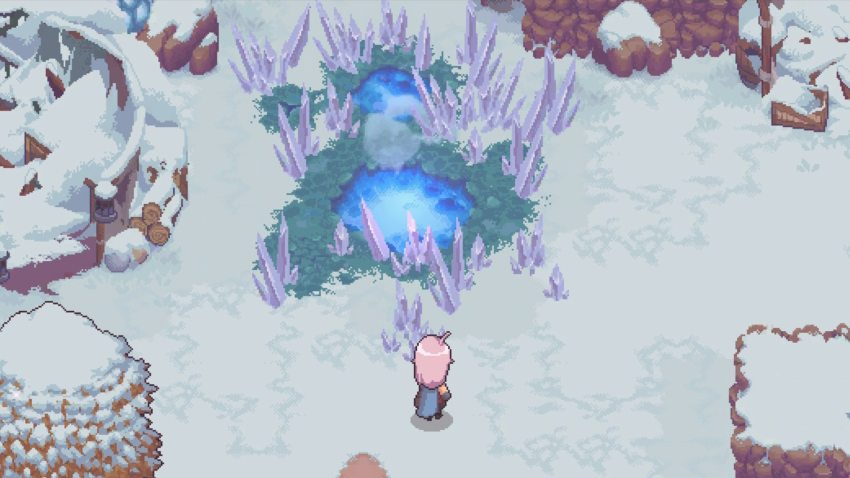Welcome to my Potion Permit review. We were not given a review code for this title.
- Buy Potion Permit on Steam
- Buy Potion Permit on Nintendo Switch
- Buy Potion Permit on PlayStation
- Buy Potion Permit on Xbox
Potion Permit is a cozy life-sim RPG where you play as a chemist in a charming little town. Your job is to gather ingredients, brew potions, and help villagers who get sick. You explore the wilds, fight some monsters, and build friendships with (at first standoffish) townsfolk. There’s fishing, crafting, and even a cute dog to keep you company while you balance work and relaxation in a laid-back, pixel-art world.
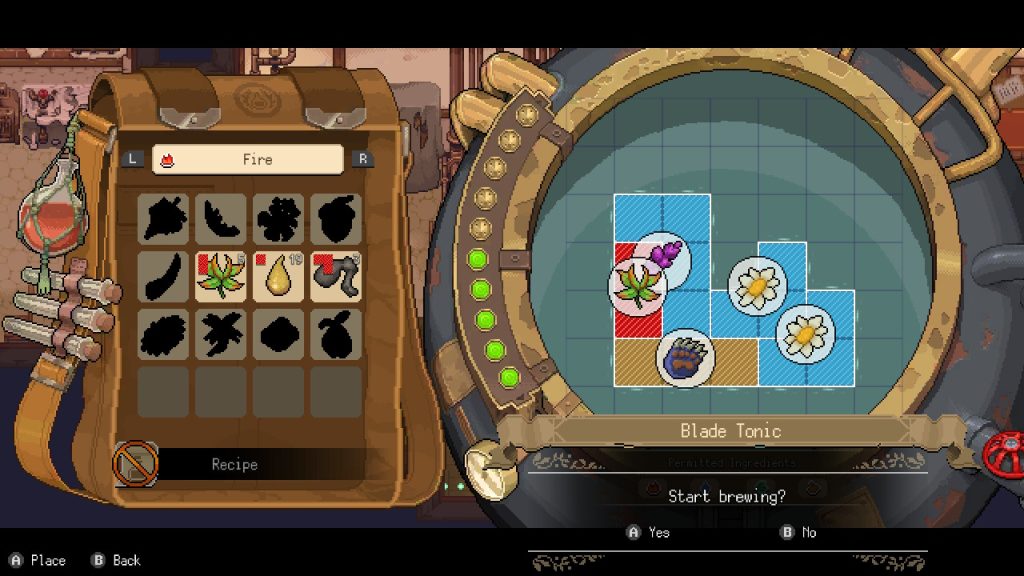
The main story of Potion Permit centers around uncovering why the town is so mistrustful of alchemists and the capital. The mayor first invites you to heal his sick daughter, and as you prove your skills by treating other villagers, you slowly earn the trust of the community. Alongside healing, you uncover the town’s history, the mystery behind the locals’ distrust, and a deeper connection to the natural and magical elements of the land. By collecting lost notes and letters and earning the townsfolks’ trust, the overarching narrative will start to be made apparent. There is something amiss in the town, and it’s your duty to set things right.
Potion Permit revolves around exploring, gathering ingredients, crafting potions, and treating patients. Players venture into nearby wilderness areas to collect herbs, mine ores, and battle monsters for rare drops, using tools like a scythe, hammer, and blade. Combat is simple but requires timing, as enemies have distinct attack patterns. Once resources are gathered, players return to their lab to craft potions using a puzzle-like system where ingredients must be slotted into specific shapes to match the potion recipe. Efficiency in gathering and crafting is key to treating patients on time.
The potion-mixing minigame is like a puzzle where you fit ingredient pieces into a grid to match a potion recipe. Each ingredient—like herbs, monster drops, or minerals—has a specific shape and elemental type, such as fire, water, earth, or wind. Recipes require certain elements to be included, and players must strategically place pieces without exceeding the grid’s limits. More complex potions have larger or more awkward-shaped requirements, challenging you to optimize your ingredient choices. As you upgrade your tools and unlock rarer ingredients, you gain more flexibility in crafting, making the minigame a satisfying balance of strategy and creativity.
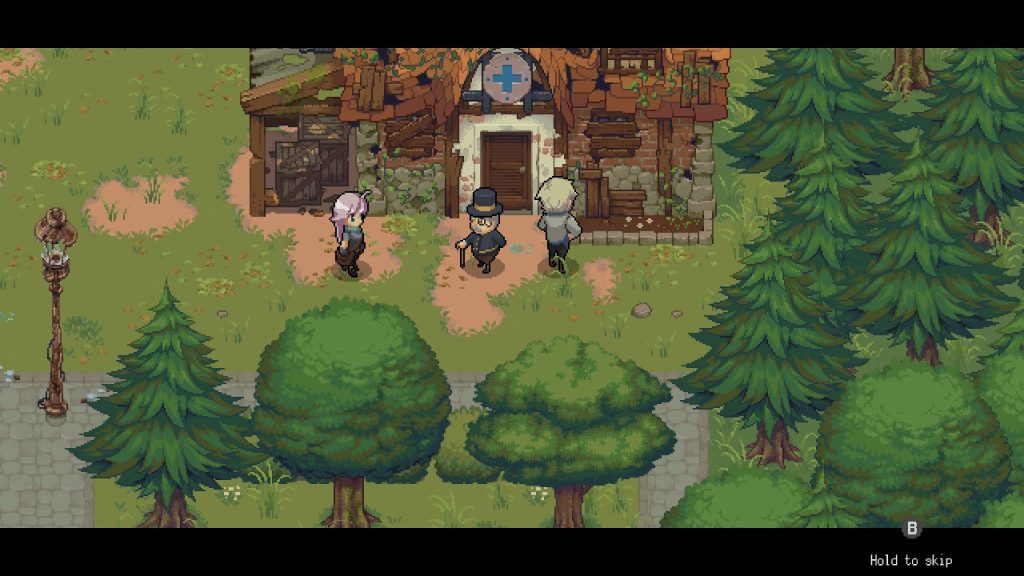
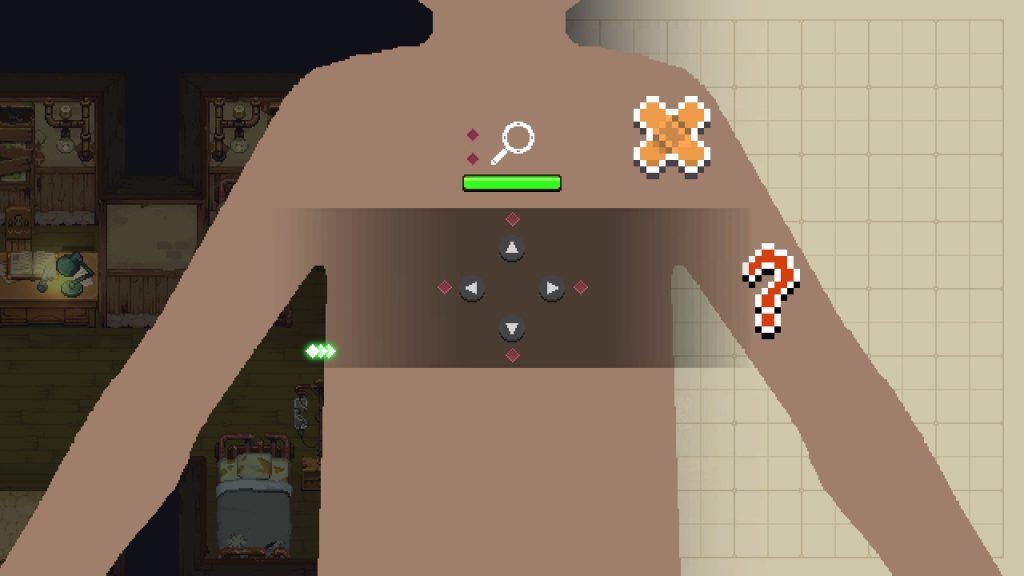
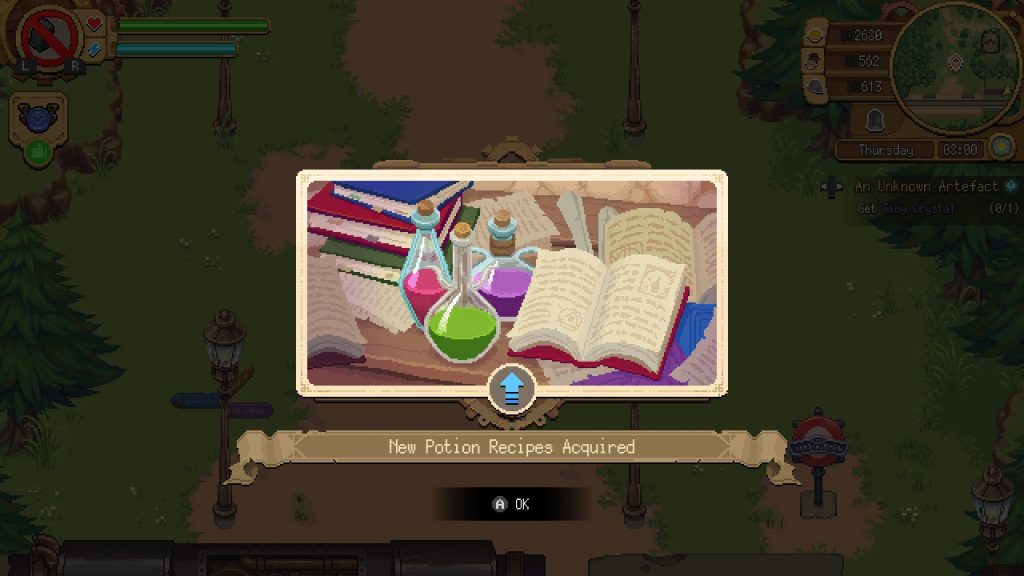
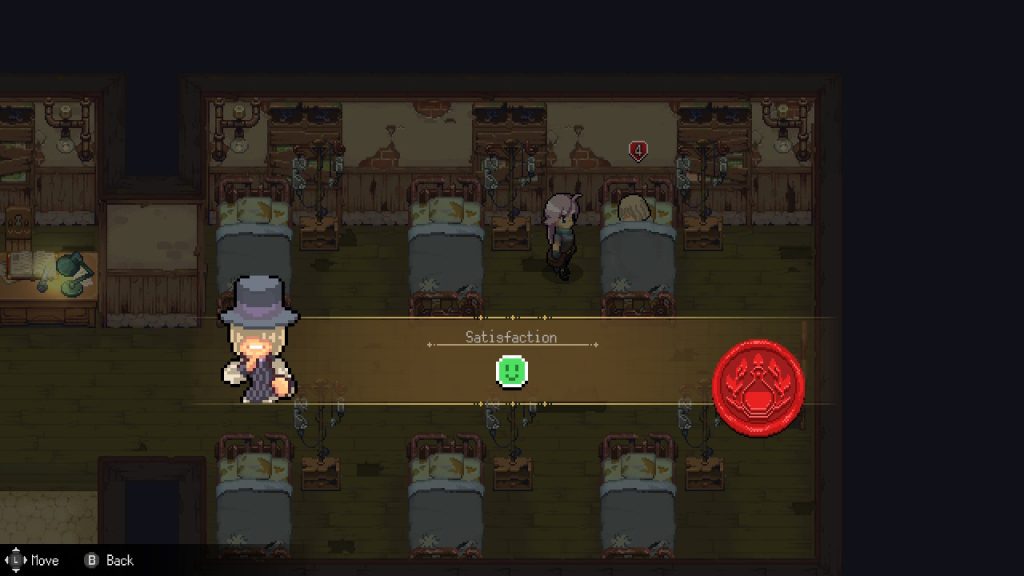
Outside of potion-making, the game offers an assortment of other activities. Players can befriend villagers by completing quests, chatting daily, or giving them gifts, which deepens relationships and unlocks storylines. There’s also fishing, expanding your house and lab, and upgrading tools to access harder-to-reach areas. Patients arrive with specific ailments that require diagnosis through minigames, like matching patterns or pressing buttons in sequence. The pace is relaxed, and there’s no hard fail state, making the experience cozy and forgiving.
You’ll spend most of your time collecting resources in the dangerous wilderness. The wilderness in Potion Permit is divided into several regions, each with its own biomes, resources, and challenges. You start in the Meadow Range, a bright, peaceful area where you gather basic herbs and fight low-level creatures like slimes and small critters. As you progress, you’ll unlock tougher regions like the Glaze Iceberg, a snowy expanse with icy enemies and rare minerals, and the Barren Wasteland, a desolate, dangerous area filled with aggressive monsters and high-value resources. Each zone introduces new tools and upgrades to access previously unreachable areas, rewarding exploration and preparation.
Exploration is tied to your stamina, which drains as you use tools or take hits during combat. Combat is action-based, requiring you to dodge enemy attacks and strike back with tools like a sword, hammer, or sickle. Each weapon type has its strengths; for example, the hammer deals high damage but is slower, while the sword is quicker for evading enemies. Managing your stamina is crucial—depleting it will force you to return home, ending your day early. Carry food or potions to restore stamina and health, and always plan to bring enough to last longer expeditions.
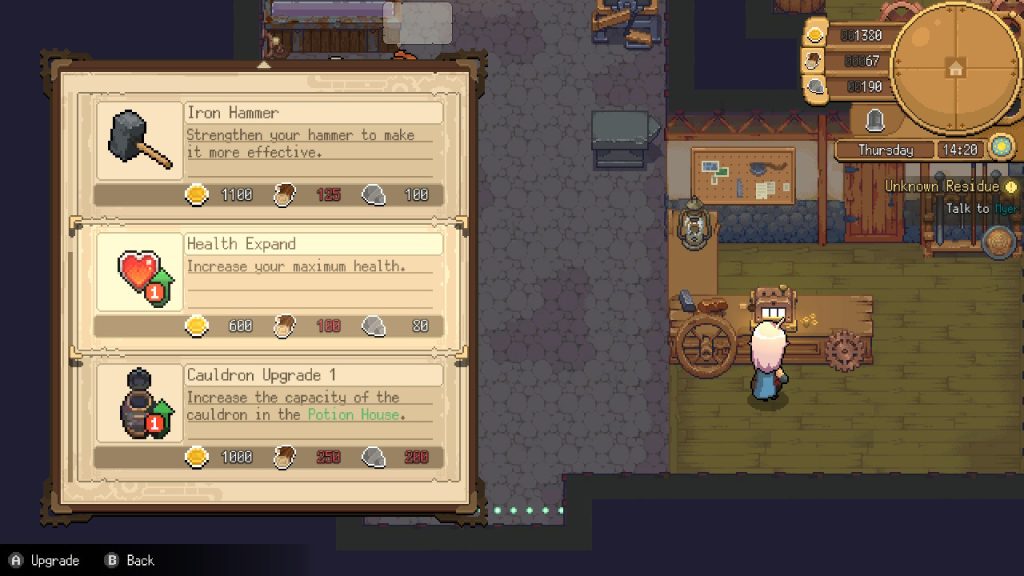
Tool and building upgrades are essential for progressing through the game and making tasks more efficient. Tools like your hammer, sickle, and axe can be upgraded at the local blacksmith using materials such as wood and stone gathered from the wilderness, alongside gold (of course). Upgraded tools use less stamina and make faster work of stones and stumps. Equally as important are building upgrades (like expanding your clinic or upgrading your home), which are handled by the carpenter and require both gold and crafting materials. These upgrades improve your work environment—for example, expanding your home provides more space for a garden and cooking.
Though very repetitive, anyone who enjoys the mindless grind of resource collection and management will find tons of satisfaction in the cycle here. It’s my favorite part of the game, and I have several save files on-the-go for when I just feel like grinding for materials while listening to my favorite podcast (currently: Press ESC, feat. the one and only Valkyrae). The cycle is simple, easy, and satisfying, and progress comes in waves: gather items, make potions, get paid, gather wood/stone, make better buildings, accept more patients, and repeat.
I often find myself craving this kind of straight-forward, cozy grind in similar games and finding they never quite scratch the itch that Potion Permit manages to.
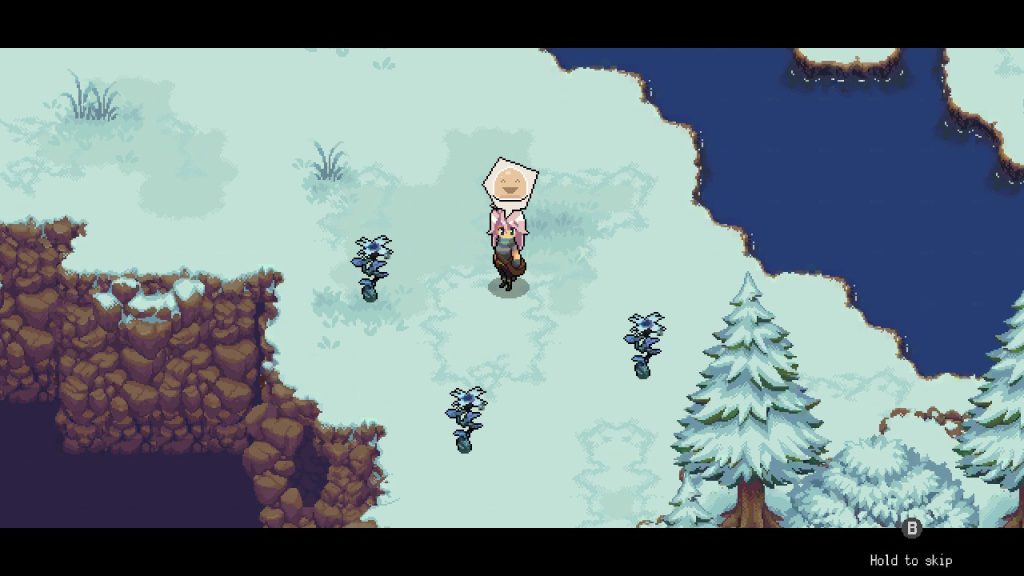
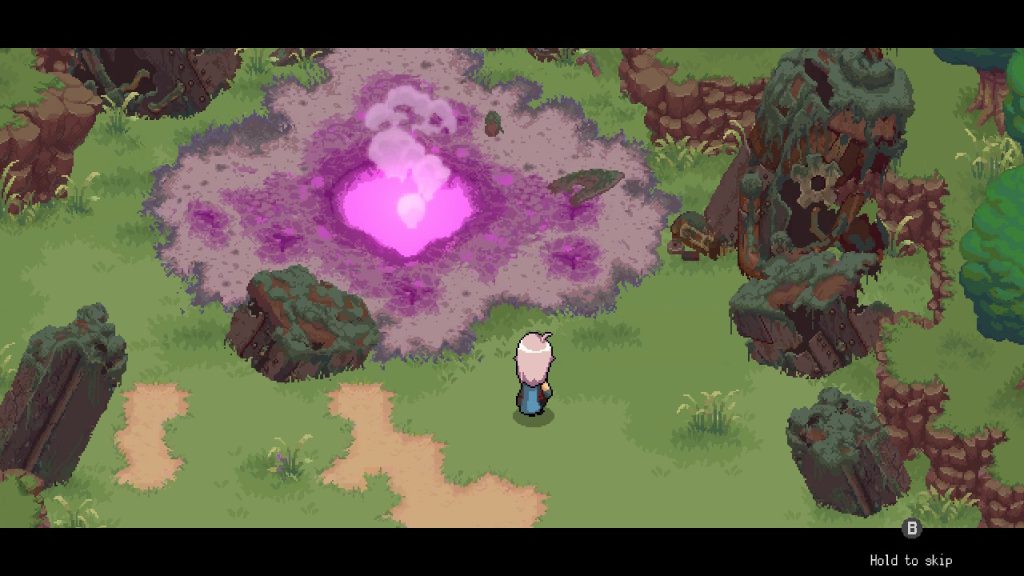
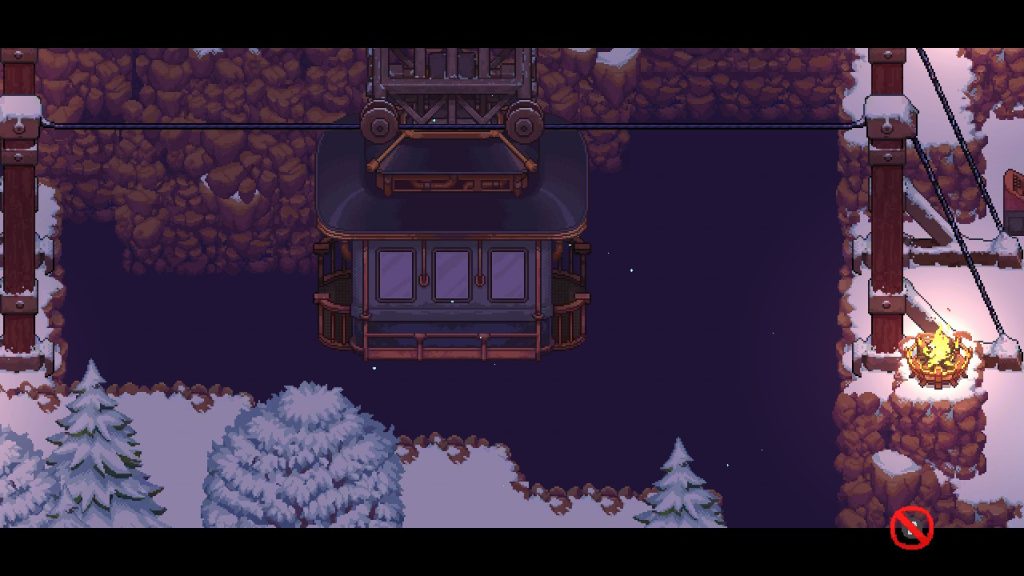
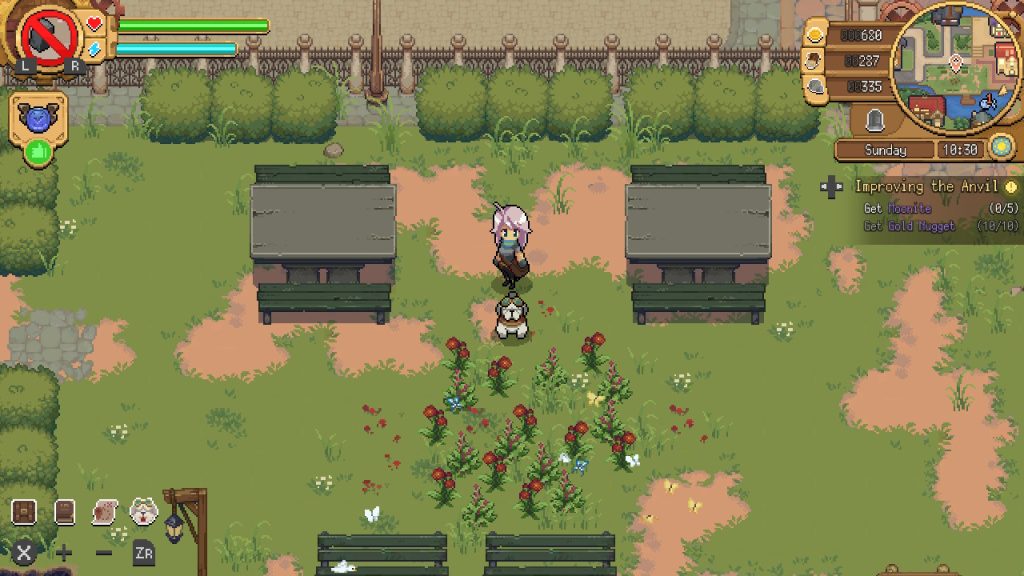
Players can also explore romantic relationships with several eligible bachelors and bachelorettes in Moonbury. These characters each have unique personalities, routines, and story arcs that add some depth to the relationship management system. To start a relationship, you’ll need to build friendship by chatting with them daily, completing their personal quests, and giving them gifts. Over time, your bond grows, and you unlock special cutscenes that delve deeper into their lives and emotions. Once your relationship reaches a certain level, you can confess your feelings by giving them a Moon Brooch, a special item symbolizing your affection.
Comparatively shallow to games of a similar nature, dating is more of an accent rather than a key perk. You can’t get married, you can date as many people as you want without them commenting on it, there is only one gift type (and everyone loves the same thing), and there isn’t much to do with NPCs once you max out their friendship/romance level. You don’t get any benefits from dating or courting someone, so it’s more for story flavor than anything else. However, there were tons of charming characters that caught my eye and I genuinely was interesting in getting to know each one of them. The sassy, mysterious casino owner, Helene; the mayor’s hardworking right-hand-man, Xiao; the cheery barmaid, Martha; and the quirky town mad scientist—or necromancer?—Victor are some of my personal favorites.
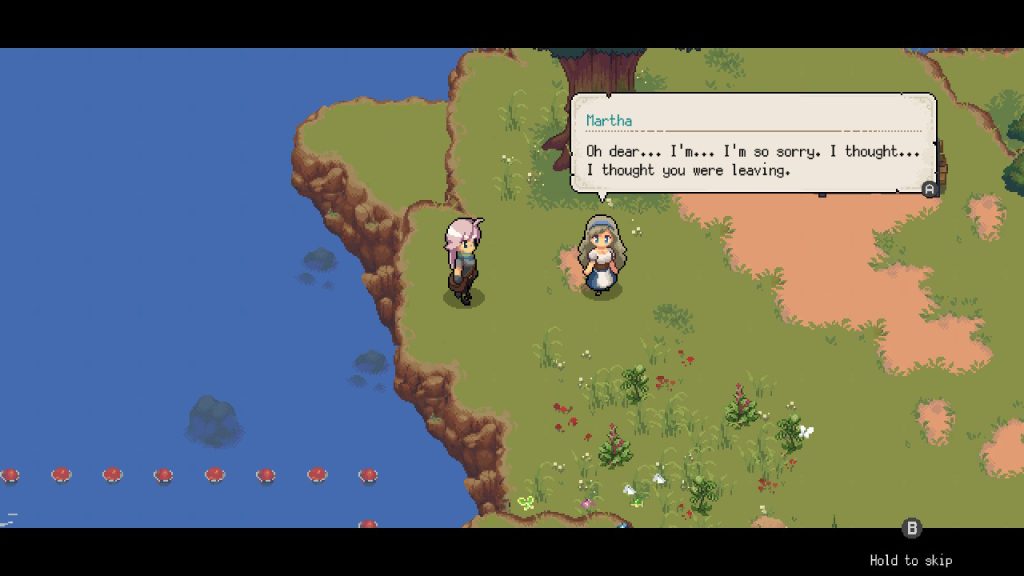
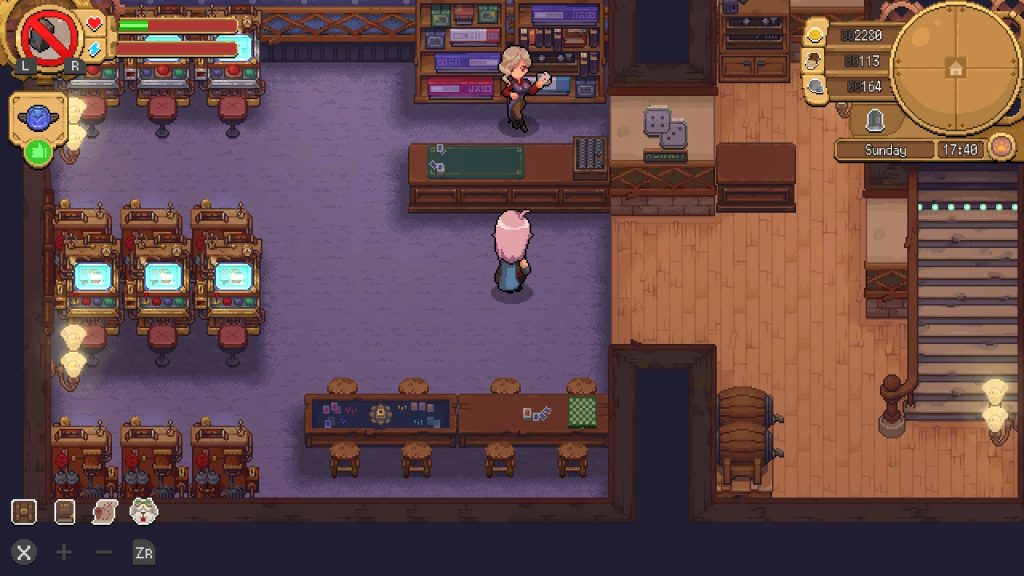
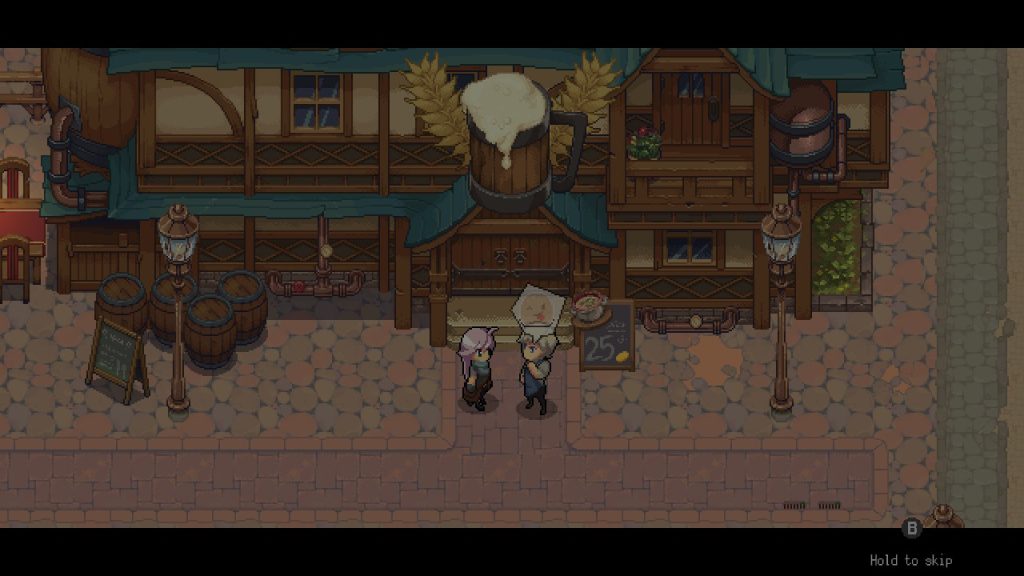

Summary
Here’s a quick summary of the main points of my Potion Permit review, for those who don’t have time to read the whole thing. (Mood.)
Pros
- Addictive gameplay cycle
- Cute and interesting characters
- Beautiful, stylish pixel art
- Environmentalism messages
- Great for cozy gamers who love a mindless grind
Cons
- Can be repetitive or slow-paced at times
- NPC relationships aren’t as deep or interesting as in other similar games
- Not for those who don’t like combat elements in their cozy games
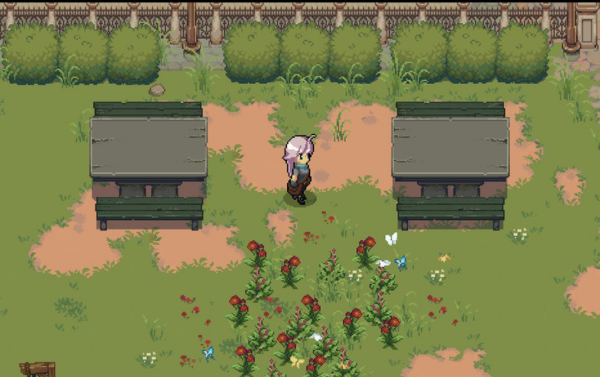
Potion Permit stuns with its smooth, bouncy pixel art, addicting gameplay grind, and cozy small town atmosphere, making it an excellent choice for fans of life-sim and crafting games. Its blend of exploration, resource gathering, and relationship-building keeps the experience engaging, while the potion-crafting minigame adds a satisfying layer of strategy. However, the game’s pacing can feel slow at times, especially with repetitive gathering and basic combat mechanics that lack depth. Some players might also find the NPCs’ personalities a bit shallow compared to other sim games.
I bought Potion Permit at full price and always advise others that it’s worth the relatively low cost. I easily got 45+ hours of gameplay just rolling credits, and that left me at only 75% total completion rate. With completionism and achievements, you can easily spend 50-60 hours with this title.
Stay cozy, gamers!
Games you may also like if you enjoyed Potion Permit:
